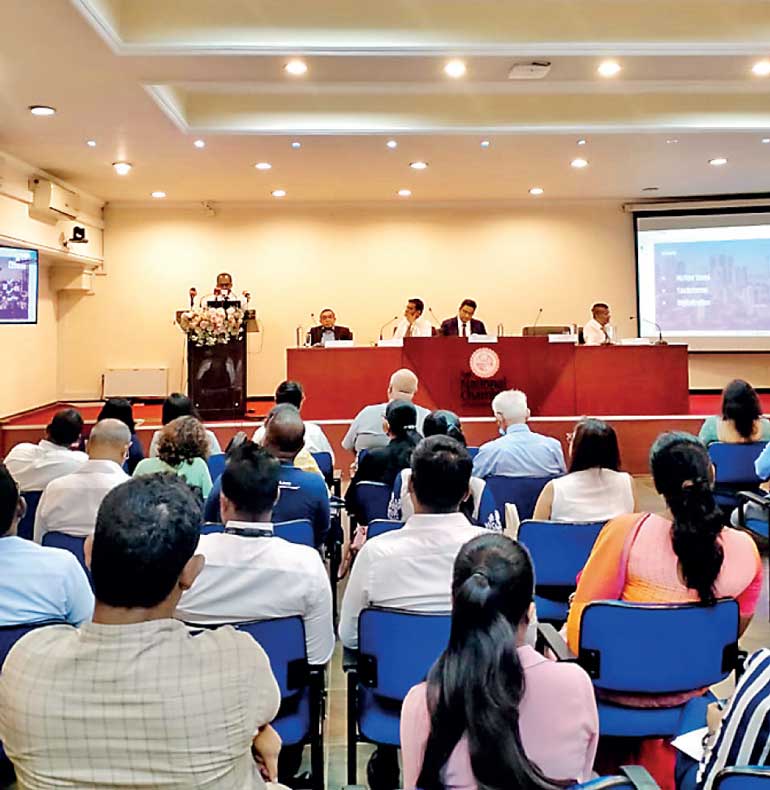Friday Feb 20, 2026
Friday Feb 20, 2026
Thursday, 13 November 2025 00:04 - - {{hitsCtrl.values.hits}}


The National Chamber of Commerce of Sri Lanka (NCCSL), in partnership with KPMG Sri Lanka, hosted the post-Budget Seminar 2026 on Tuesday, bringing together leading economists, policymakers, and business leaders to analyse the implications of the 2026 National Budget, with a focus on fiscal discipline, digitalisation, and sustainable economic growth.
The seminar featured a distinguished panel, including Dr. M. Kapila Senanayake, Director General of the Department of Fiscal Policy; Prof. Sirimal Abeyratne, Emeritus Professor of Economics at the University of Colombo and Executive Director of CEPA; Hasitha Raddella, Partner – Tax & Regulatory at KPMG Sri Lanka; Ruwan Fernando, Council Member of the National Chamber; and Nandika Buddhipala, former CFO of Commercial Bank of Ceylon and past National Chamber President.
Panelists examined key Budget proposals covering taxation, governance, and digital transformation. Hasitha Raddella noted that while no new taxes were introduced, revenue expectations have risen.
“The VAT threshold has been brought down to Rs. 36 million per annum. The government is also planning to streamline processes to ease the burden on businesses,” he observed.
In his presentation, Dr. Senanayake emphasised that the 2026 Budget reflects policy consistency and a strong commitment to fiscal discipline under the IMF framework. “Our budget is really a development Budget. You can see that Government development is the key here,” he stated, highlighting the focus on sustainable growth, export diversification, and digital transformation.
Prof. Abeyratne underscored the importance of long-term structural reforms to achieve the desired growth targets. He drew attention to the connection between economic growth and social well-being, noting that Sri Lanka faces both visible and hidden poverty. “Out of 22 million people in this country, six to eight million are below the poverty line according to available studies and simulations. In addition, there is hidden poverty among middle-class professionals poverty that exists within their homes,” he remarked.
Prof. Abeyratne further emphasised the need to empower SMEs, expand exports, and attract greater foreign direct investment.
Buddhipala highlighted the critical link between public investment, governance, and economic growth. “In emerging markets, positive public investment shocks increase output in both the short and medium term,” he added.
The seminar served as a key platform for open dialogue on fiscal policy, governance, and economic strategy, reaffirming the National Chamber’s role in shaping private sector development in Sri Lanka.